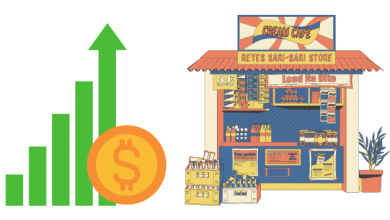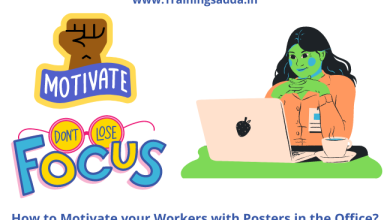How Company Culture Impacts Customer Experience
Impact of Company Culture in Customer Interaction

A good company at inception stage can possess a potential capability of sustaining and progressing towards the financial and entrepreneurship goals under hardships prevailing in the market provided it focuses aptly on the ever-changing customer requirements rapidly. Thus, it becomes imperative for the key players in the company to implement and engage the policies into the mainframe structure or company cultural environment wherein, the customers can provide their valuable feedback’s and seamlessly maintain a healthy relationship based on their previous experience. There are multiple factors that certainly impact the growth of the enterprise and poses a greater challenge towards the capacity building such as market risks, stock price fluctuations, peer-to-peer competition, tenacity to predict the variation in actual market conditions, rapid flexibility to customer’s demand and customer’s perspective feedback. Amidst these challenges, customer’s feedback plays a crucial role since it can be well manipulated or can be controlled through the aggregation of satisfied customers to drive one’s company into positively profitable state as compared to other firms/business organization which often tend to ignore the highly valuable inputs from the customers.
Read more: How to Use Automation to Keep a Tight Sales Pipeline
Table of Contents
What is company culture?
There are variety of norms, classified charters, formal guidelines and ethical values that binds the employers and business players systematically into the hierarchy mainframe structure of the organization that together with integration with underlying beliefs forms the company culture. These pertinent criterion reflects the behavioral aspect and the preemptive assumptions that are more likely to be followed by the employers and the peer people around them which are tactfully implied during the dealings with clients and corporate organizations. In a more crisp sense, it can be inferred that any organization holding a strongly motivated multi-leveled company culture and positively refined norms is surely a significant contributor of enthralling social relationships and psychological interacting environment among the business transactions aimed at larger development of the self-position in the market.
What are generally observed levels of Company Culture:
In any kind of organization functioning either under the product development category or following a well-recognized mainstream business transaction ideology, its inner mainframe structural organization culture can be understood based on the points of priority standardized by the employers and are highlighted below:
Artifacts observed among the working fellows/colleagues
It forms the rudimentary part of the visible practices prevailing inside the company as it provides a keen insight into how well the behaviors and individual performance are aligned with the empowering values and prudent foresight towards the progressive growth and effective contribution to the company. These artifacts also include diverse factors like sharing of stories, quintessential approach to understanding of symbols along with texts, ceremonies events and award functions organized by the mentors, socially oriented ritualistic practices for motivating the employers and facilities made available to individual defining their requirements and similar observable products.
Read more: Social Media To Increase Business Revenue
Espoused and Enacted values
This concretely includes the norms and charters wherein, the mission statements, strategic goals and visions, empowering slogans, industry and business environmental parameters, decision making capability, are clearly demonstrated and showcased. These embraced values are based on a set of rules which are essentially laid during the foundation of the company by the senior leaders and are principally brought into practice through managerial visions to procure the aims/goals set forth.
Assumptions:
These are considered as the hidden values which must be inferred by the employers and the working officials in a more precise way without a directional assistance from the people around/above them in position. It can be inferred that it includes the unconscious state of presumptions which can be taken-for-granted depending upon the personal perceptions or beliefs and mentally framed models of idealistic views for achieving the concerned target.
Learn more: 8 Ways to Maximize Your YouTube Marketing Results
It must be well noted that the above three level can be placed priority wise as highlighted above with same order of appearance and follows the Edgar Scheins’s classification system and has been included to facilitate the proper understanding of the company culture in a more organized manner to public and viable audience concerned.
What is meant by customers experience and its correlation with company culture?

The purchase of the products or the business transactions between the company and the client are carried out under different policies/agreement conditions which are essentially set by the company managers within the company like Zendesk dealing measures. The standard of services and marketing impact can always be scaled in terms of customers’ satisfaction inputs, valued suggestions, critical feedbacks and similar points of evaluation which every company obtains based on the experience of the customers. Such customers experience feedbacks are important in maintaining the robust position in the markets among the competitors and are integral ingredients of understanding where lies the blind spot in the company’s business transactions strategies or faulty implementation policies which might impact the growth of the organization in the longer run. Thus, there lies a very thin boundary between the feedback of customers experiences and the smooth sustenance of the organization. To achieve sustaining position, the company culture must incorporate customer ecentric mindset into the employers and into its mainframe based on four different factors namely:
1) Context:
a proper clause must be remarked and stated into the product purchase/selling disposition that can help the customers to choose what they like or want without misinterpretation.
Know more: Ultimate Guide for Offshore Software Development
2) Customization:
A typical options for seamlessly tailoring the requirements of the customers based on the contextual information is a good strategy.
3) Enhancement:
A periodical enhancements in the products and associated accessories can be promising to instill emotional, mental and physical satisfaction at the customers’ end over a period of time.
4) Consistency:
Ability to deliver and process the demands of the customers within the deadline shows a state of higher professionalism in company culture that surely accrue positive sense of experience in customers as collective response across the regional boundaries which is profitable for business transaction expansion. Hence, above factors have direct implications on the customer’s experience which helps in progressive development of any company whether an amateur or popular.
Read more: Top 3 Reasons to Prefer an Online Task Management Software
Comments
0 comments




